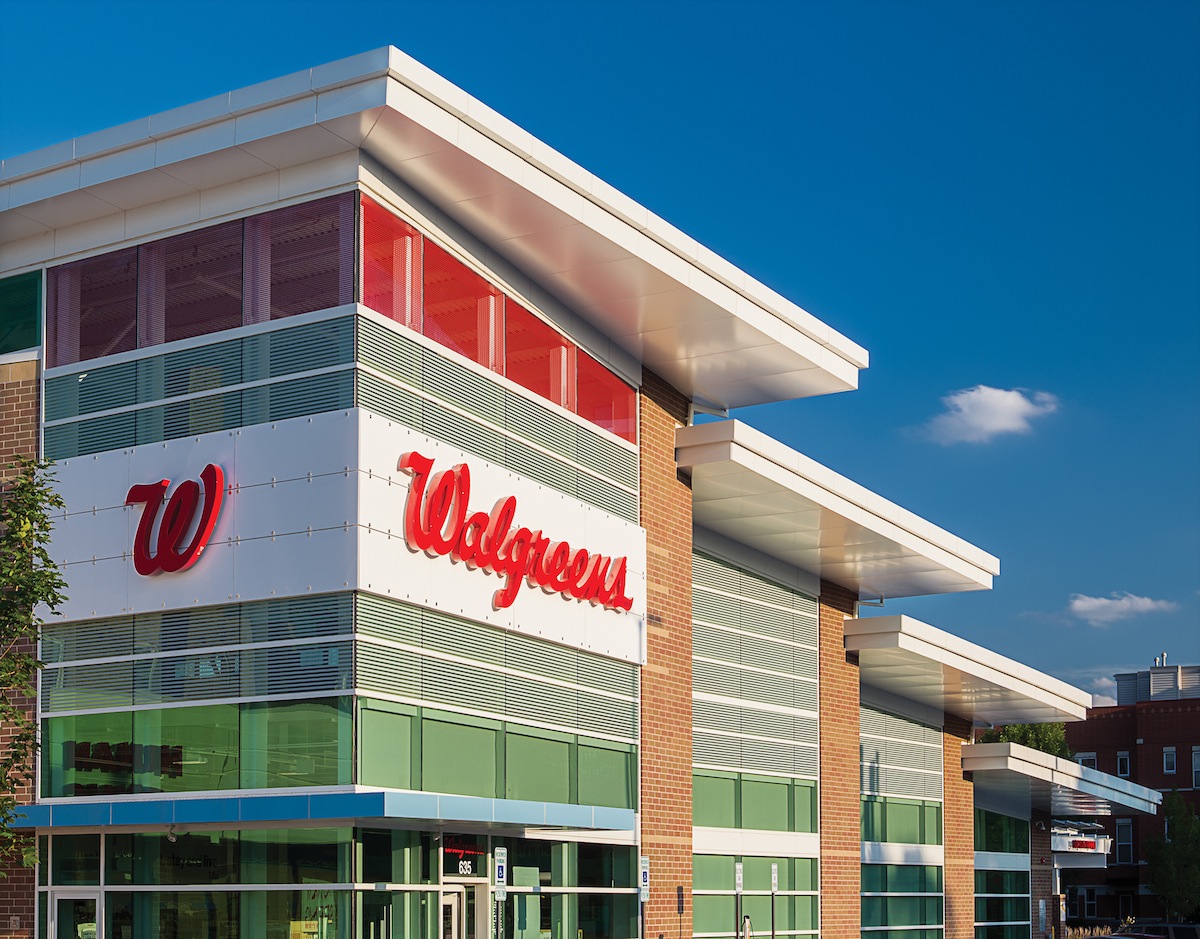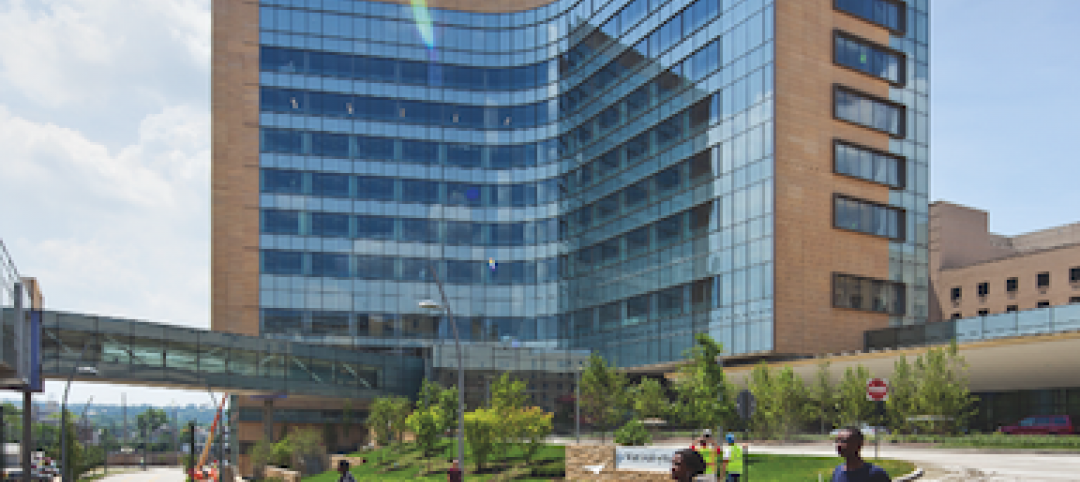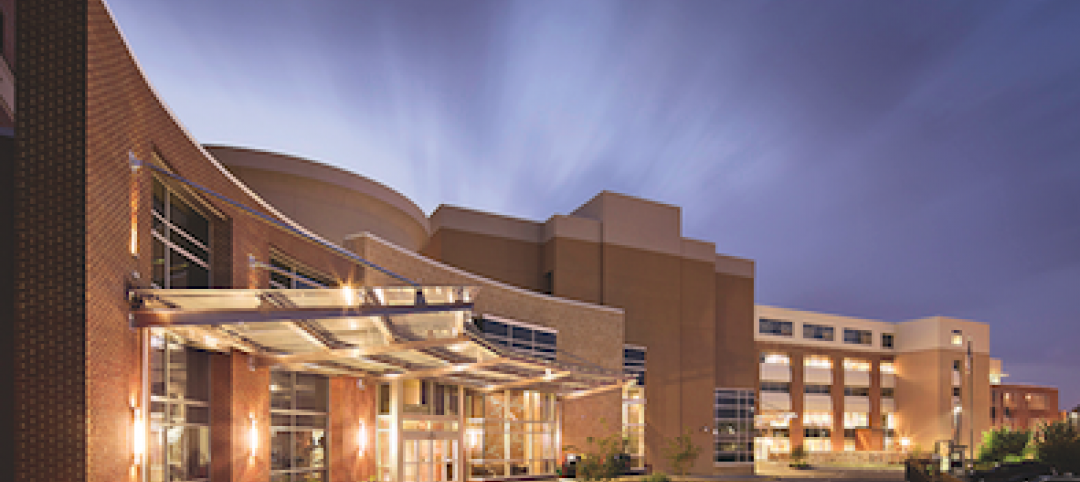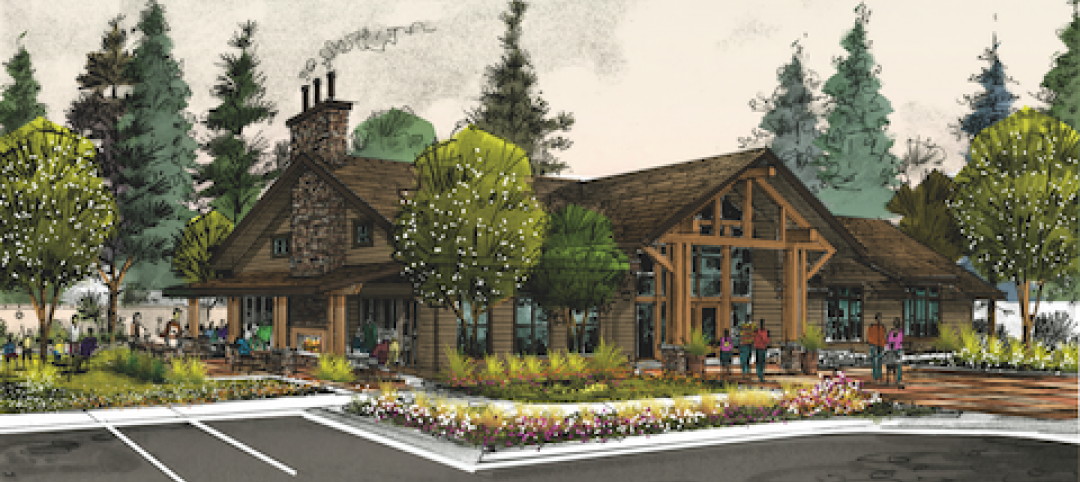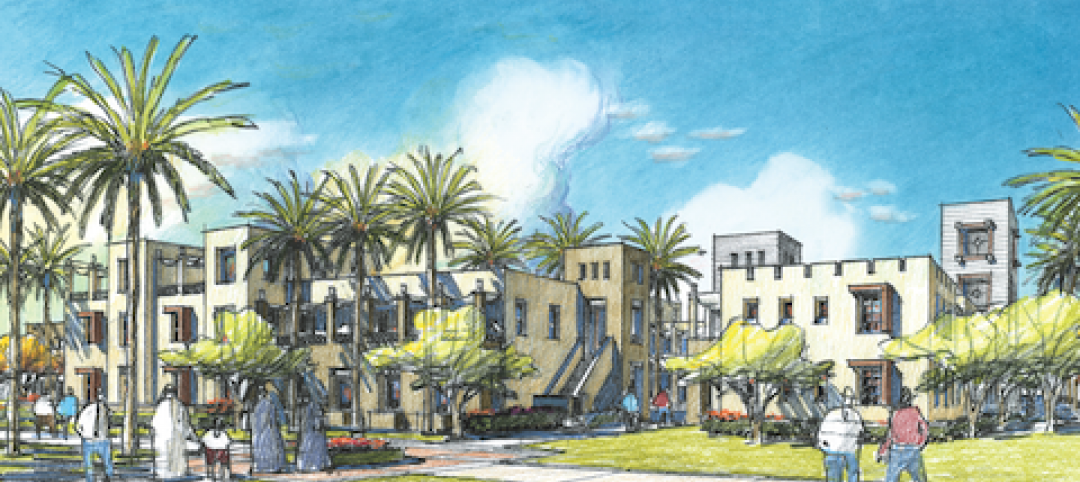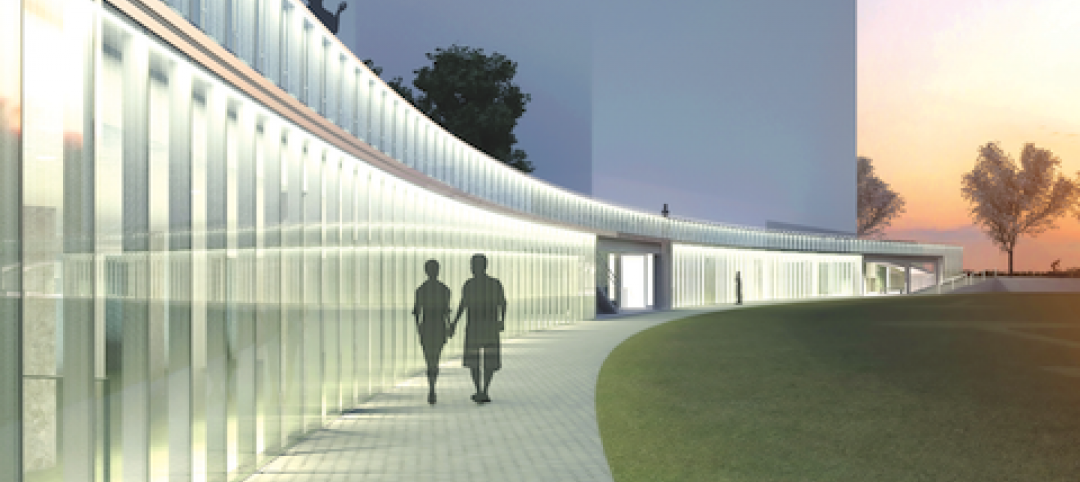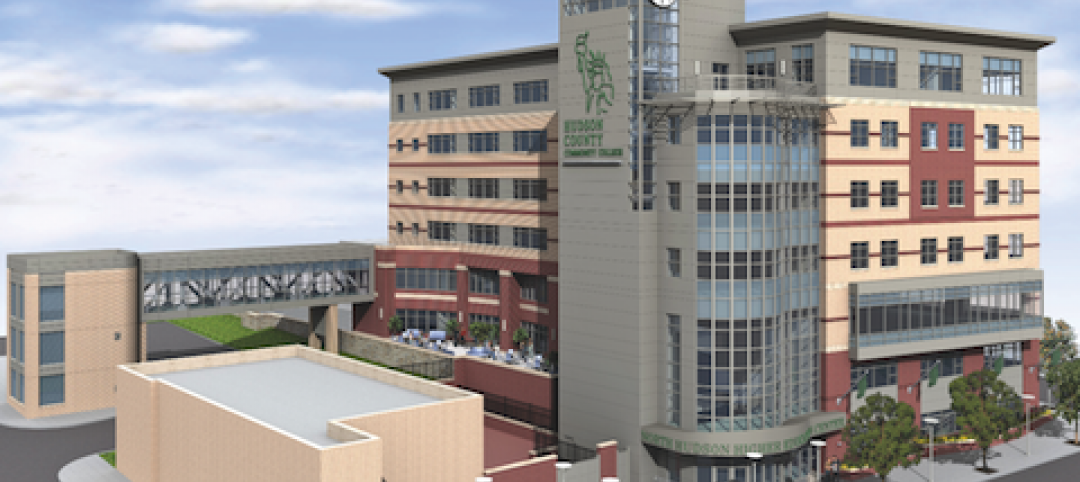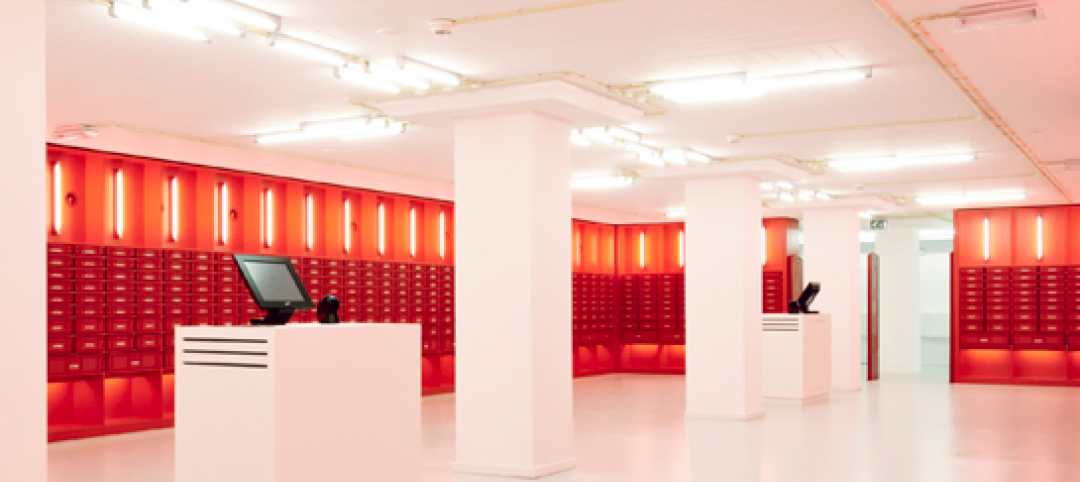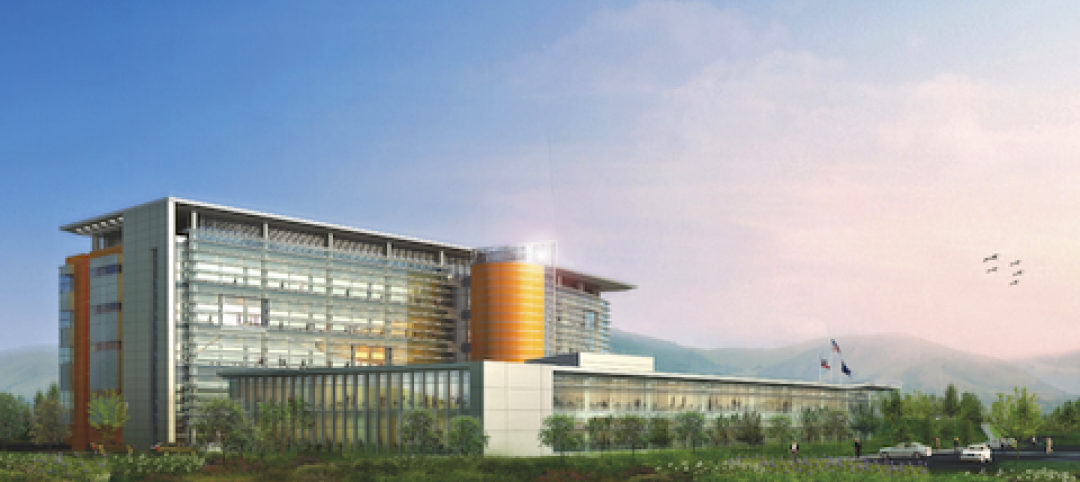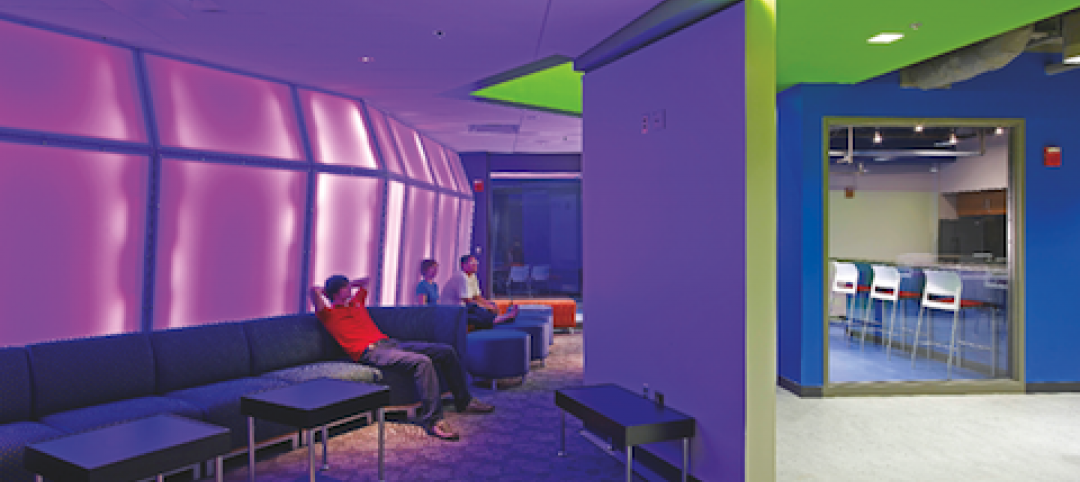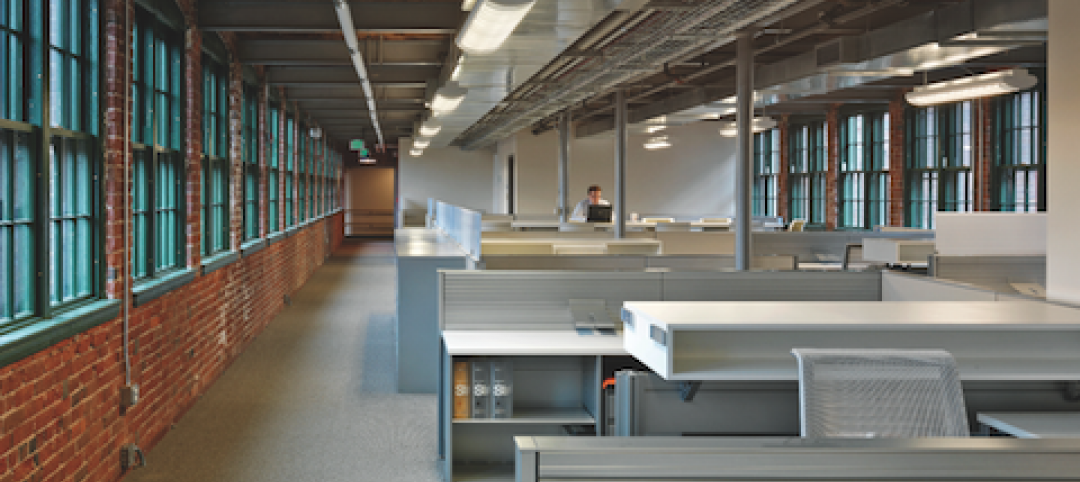Design of the nation’s first zero net energy retail store elevates the typical Walgreens shopping experience from one of convenience to relevance. The new store in Evanston, Ill., features metal and composite material from Petersen Aluminum Corp., and a roof made of tiered sections that support almost 850 solar panels. The clever building design includes enough sustainable features to attempt to earn LEED Platinum status.
The store’s architecture is open and inviting, according to the design by John Bradshaw, licensed architect/planner at Camburas and Theodore Architects in Des Plaines, Ill., and those on his team. The design required roughly 33,000 sq. ft. of Petersen bone white steel coil, plus 7,600 sq. ft. of Reynobond composite panels for the soffits, edge trim and the backdrop that frames the lighted Walgreens signs above the main entrance. Sheet Metal Supply in Mundelein, Ill., roll-formed custom 13-in.-wide roof panels to accommodate the solar panel mounting system. Petersen’s ability to stock coil in non-standard widths reduced scrap and saved money.
The best feature of the building, in Bradshaw’s opinion, is the amount of daylighting. “The clerestory windows at each segment of the roof that we used for daylight harvesting, with the cantilevered roof segments that shade summer sun and provide maximum roof area for the solar panels, the segmented walls that break apart to allow even more daylight harvesting – all these elements acting together created the best look on the building,” he insisted.
The vision for the building incorporated the elements of green design such as daylight harvesting, solar panel arrays and a mechanical mezzanine. “It was our mission to incorporate these items in a meaningful design but, more importantly, to celebrate this new icon of sustainability and to promote its virtues with a design that lifted the typical Walgreens to a new height, both literally and figuratively,” Bradshaw said.
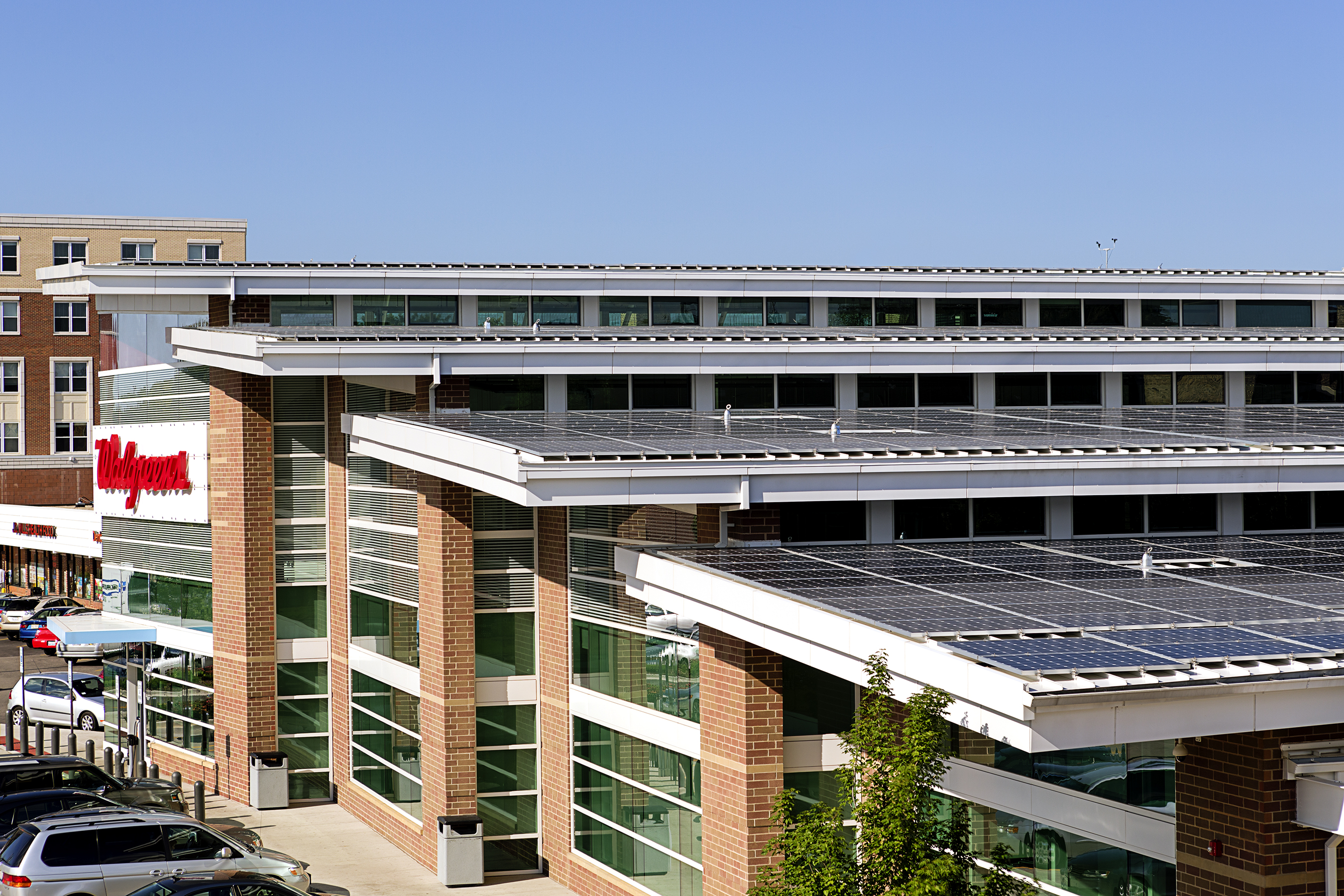 850 roof-top solar panels attached to metal roof.
850 roof-top solar panels attached to metal roof.
Bradshaw prefers working with Petersen Aluminum products. “Truly, Petersen Aluminum is one of the most trusted products that we specify. We have never had a performance issue with the products, the color selections are broad and they are local, which suits almost all of our needs,” he said.
Inconveniently positioned power lines over an urban lot with restrictions on all sides contributed to a challenging work site, said Chuck Heintzelman of installing contractor WBR Roofing in Wauconda, Ill. “We simply worked around our surroundings like we always do, and made it work,” he said. Regarding Petersen products, Heintzelman added, “We enjoy using PAC-Clad products. Plus, it’s great to be part of a LEED building.”
In addition to the nearly 850 roof-top solar panels that generate enough energy to power 30 Illinois homes for a year, the Walgreens store also includes:
- Two 35-ft.-tall wind turbines, using Lake Michigan breezes to generate enough power to offset annual greenhouse gas emissions from 2.2 passenger vehicles;
- Geothermal energy obtained by drilling 550 feet into the ground below the store, where temperatures are more constant and can be tapped to heat or cool the store in winter and summer;
- LED lighting and daylight harvesting;
- Carbon dioxide refrigerant for heating, cooling and refrigeration equipment;
- Energy efficient building materials.
Engineering estimates – which can vary due to factors such as weather, store operations and systems performance – indicate that the store will use 200,000 kilowatt hours per year of electricity while generating 220,000 kilowatt hours per year.
Thomas Connolly, Walgreens vice president of facilities development, said, “We are investing in a net-zero energy store so we can bring what we learn to our other stores and share what we learn with other companies. Because we operate more than 8,000 stores, anything we do that reduces our carbon footprint can have a broad, positive impact on the nation’s environment.”
Sheet Metal Supply in Mundelein, Ill., supplied the metal for the roof panels. The general contractor was Osman Construction Corp. in Arlington Heights, Ill.
To learn more about the Walgreens net zero energy store in Evanston, Ill., visit this page.
Related Stories
| Oct 13, 2010
Prefab Trailblazer
The $137 million, 12-story, 500,000-sf Miami Valley Hospital cardiac center, Dayton, Ohio, is the first major hospital project in the U.S. to have made extensive use of prefabricated components in its design and construction.
| Oct 13, 2010
Hospital tower gets modern makeover
The Wellmont Holston Valley Medical Center in Kingsport, Tenn., expanded its D unit, a project that includes a 243,443-sf addition with a 12-room operating suite, a 36-bed intensive care unit, and an enlarged emergency department.
| Oct 13, 2010
Apartment complex will offer affordable green housing
Urban Housing Communities, KTGY Group, and the City of Big Bear Lake (Calif.) Improvement Agency are collaborating on The Crossings at Big Bear Lake, the first apartment complex in the city to offer residents affordable, eco-friendly homes. KTGY designed 28 two-bedroom, two-story townhomes and 14 three-bedroom, single-story flats, averaging 1,100 sf each.
| Oct 13, 2010
Residences bring students, faculty together in the Middle East
A new residence complex is in design for United Arab Emirates University in Al Ain, UAE, near Abu Dhabi. Plans for the 120-acre mixed-use development include 710 clustered townhomes and apartments for students and faculty and common areas for community activities.
| Oct 13, 2010
Community center under way in NYC seeks LEED Platinum
A curving, 550-foot-long glass arcade dubbed the “Wall of Light” is the standout architectural and sustainable feature of the Battery Park City Community Center, a 60,000-sf complex located in a two-tower residential Lower Manhattan complex. Hanrahan Meyers Architects designed the glass arcade to act as a passive energy system, bringing natural light into all interior spaces.
| Oct 13, 2010
Community college plans new campus building
Construction is moving along on Hudson County Community College’s North Hudson Campus Center in Union City, N.J. The seven-story, 92,000-sf building will be the first higher education facility in the city.
| Oct 13, 2010
Bookworms in Silver Spring getting new library
The residents of Silver Spring, Md., will soon have a new 112,000-sf library. The project is aiming for LEED Silver certification.
| Oct 13, 2010
County building aims for the sun, shade
The 187,032-sf East County Hall of Justice in Dublin, Calif., will be oriented to take advantage of daylighting, with exterior sunshades preventing unwanted heat gain and glare. The building is targeting LEED Silver. Strong horizontal massing helps both buildings better match their low-rise and residential neighbors.
| Oct 12, 2010
Owen Hall, Michigan State University, East Lansing, Mich.
27th Annual Reconstruction Awards—Silver Award. Officials at Michigan State University’s East Lansing Campus were concerned that Owen Hall, a mid-20th-century residence facility, was no longer attracting much interest from its target audience, graduate and international students.
| Oct 12, 2010
The Watch Factory, Waltham, Mass.
27th Annual Reconstruction Awards — Gold Award. When the Boston Watch Company opened its factory in 1854 on the banks of the Charles River in Waltham, Mass., the area was far enough away from the dust, dirt, and grime of Boston to safely assemble delicate watch parts.


